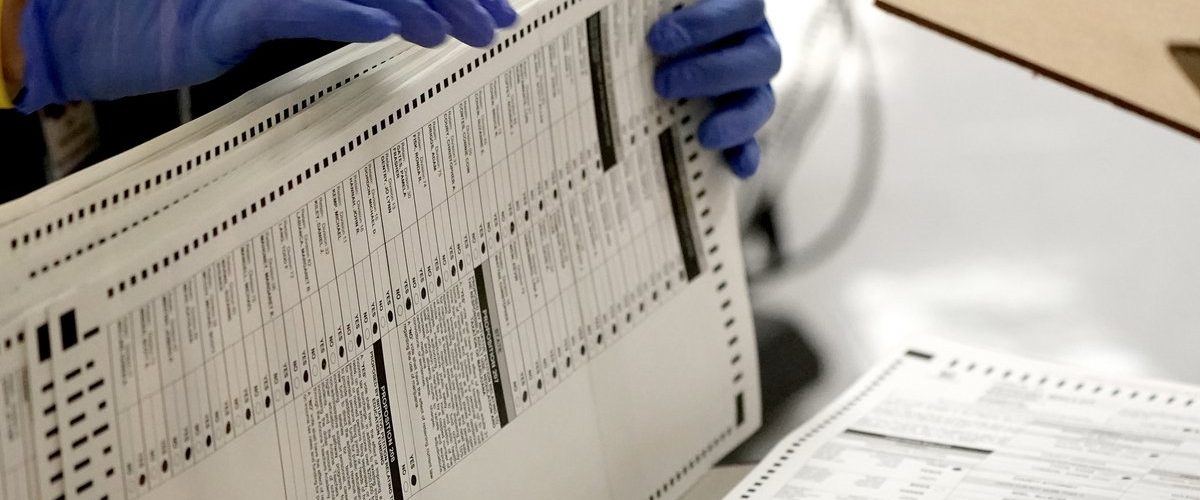Voters across the state could have a greater say in which citizen initiatives appear on the ballot if they pass a measure approved Monday by lawmakers.
The state House of Representatives on a party-line 31-29 vote passed SCR 1015, which asks voters whether to require initiative proponents to obtain petition signatures from each legislative district in Arizona.
Already approved by the Senate on 16-13 vote earlier this legislative session, the resolution will now be referred to the statewide 2024 ballot.
The resolution would require a minimum threshold of 10% of the overall required signatures to come from each legislative district in order for a proposition to qualify for the ballot.
Under Arizona law, turnout from the previous gubernatorial election determines the total number of valid signatures that must be collected.
Proponents say that this measure would ensure that propositions that make the ballot have support from every corner of the state, rather than just its most populous centers.
Under current law, proponents can gather petition signatures from any geographic region of the state they choose. There is no requirement to secure a minimum number of signatures from each legislative district, which means proponents often limit their signature gathering efforts to metro Phoenix and Tucson, ignoring voters in districts that include rural parts of the state.
“This critical reform will help ensure ALL parts of our state (including rural communities) have a say in what appears on their ballot,” Jenna Bentley, director of government Affairs at the Goldwater Institute, said in a tweet Monday.
Half of the states that have a citizen initiative process also have a petition signature geographic distribution requirement, including Arizona neighbors Colorado and Utah.
Rep. Athena Salman, D-Tempe, opposed the bill, arguing that empowering voters across the state risks giving just a single district too much influence in determining what propositions reach the ballot.
Salman said that if the residents of Mohave County, for example, wanted to put a proposition on the ballot, “if they can’t convince the legislative district residents of Scottsdale that their issue is important… they get veto power before this thing even gets a vote.”
Rep. Austin Smith, R-Wittman, countered that the proposal increases representation.
“SCR1015 ensures ALL of Arizona is heard,” Smith tweeted. “Why on earth would the Democrats be upset that LD30 and LD19 need the same representation as LD5 or LD18 for signatures?”
Supporters included the Goldwater Institute, the Arizona Farm Bureau, the Arizona Chamber of Commerce & Industry, the East Valley Chambers of Commerce Alliance, the Arizona chapter of NAIOP, and the United Dairymen of Arizona, among others.
Arizona Chamber Vice President of Government Affairs Courtney Coolidge said the measure will give voters confidence that the citizen initiatives that appear on the ballot have first been considered by a wide swath of Arizonans and not just a narrow constituency.
“The Chamber appreciates Sen. J.D. Mesnard for his leadership as sponsor of the measure in seeing it through to passage,” Coolidge said. “We’ll strongly urge voters to support it. For too long, initiative proponents have been able to gather their petition signatures from a relatively small area of the state without ever having to make their case to voters outside the metros. That will change once voters approve this measure, which is a mainstream reform similar to those already in place in half of the states with a citizen initiative system. It deserves passage.”
Opponents of the resolution represented the state’s most progressive interest groups, including Planned Parenthood of Arizona, the Sierra Club Grand Canyon Chapter and Save Our Schools Arizona.
The geographic distribution measure would mark the second consecutive election cycle where voters were faced with an initiative system reform proposal.
Voters in 2022 passed Proposition 129, which limits ballot measures to a single subject, and Proposition 132, which requires a measure seeking to raise or institute a new tax to receive at least 60% of votes cast to pass.
















Add comment